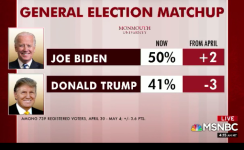Politesse
Lux Aeterna
- Joined
- Feb 27, 2018
- Messages
- 16,632
- Location
- Tauhalamme/Laquisimas
- Gender
- nonbinary
- Basic Beliefs
- Jedi Wayseeker
No, that would be a regular law. Constitutional amendments are much more difficult. You need 2/3 of both House and Senate (or a constitutional convention) and ratification by 3/4 of all states. But at least presidential assent is not required.that's going to require two votes in the legislature and presidential agreement, like any other constitutional amendment.
Get canvassing.
Aye, you're right about that.

